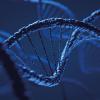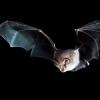New research has identified several genetic variants that may influence Alzheimer’s disease risk, putting researchers one step closer to uncovering biological pathways to target for future treatment and prevention.

The study utilised whole-genome sequencing and identified 17 significant variants associated with Alzheimer’s disease in five genomic regions.
The study was led by Boston University School of Public Health and UTHealth Houston School of Public Health. “Prior genome-wide association studies using common variants have identified regions of the genome, and sometimes genes, that are associated with Alzheimer’s disease,” said study co-senior author Dr Anita DeStefano.
“Whole-genome sequence data interrogates every base pair in the human genome and can provide more information about which specific genetic change in a region may be contributing to Alzheimer’s disease risk or protection.”
Researchers conducted single-variant association analyses and rare-variant aggregation association tests using whole-genome sequencing data from the Alzheimer’s Disease Sequencing Project.
Among the 17 significant variants that were linked to Alzheimer’s disease, the KAT8 variant was one of the most notable, as it was associated with the disease in both the single- and rare-variant analyses. The researchers also found associations with several rare TREM2 variants.
- There are currently 900,000 people living with dementia in the UK and this is projected to rise to 1.6 million by 2040.
- The risk of Alzheimer’s disease and other types of dementia increases with age, affecting an estimated 1 in 14 people over the age of 65 and 1 in every 6 people over the age of 80.
- Alzheimer’s disease affects around 6 in every 10 people with dementia in the UK.
Image credit | iStock




